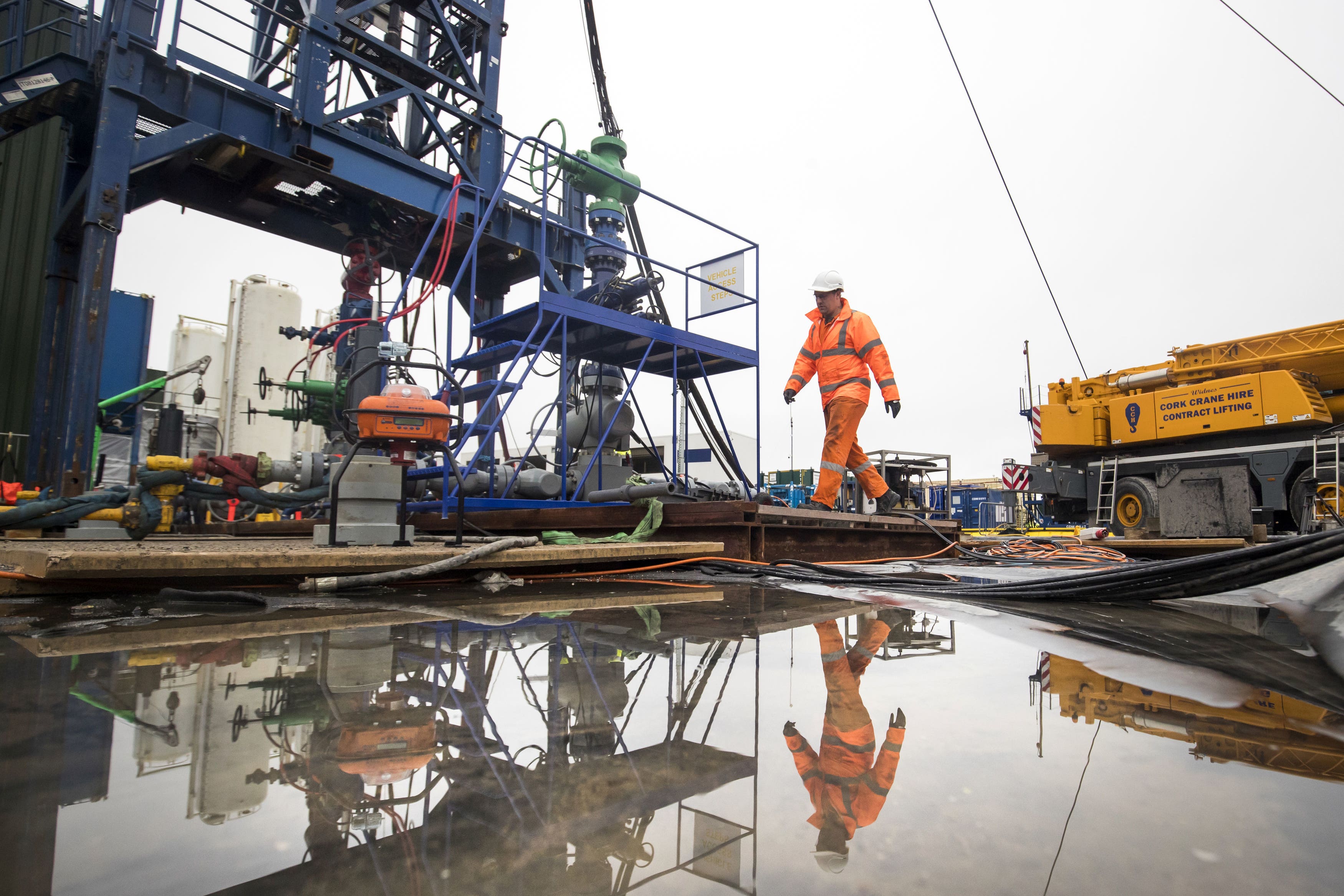Restoring fracking ban ‘beggars belief’, says Cuadrilla chief
Cuadrilla boss Francis Egan said the industry can create jobs, generate private sector investment and provide tax revenue.

Your support helps us to tell the story
From reproductive rights to climate change to Big Tech, The Independent is on the ground when the story is developing. Whether it's investigating the financials of Elon Musk's pro-Trump PAC or producing our latest documentary, 'The A Word', which shines a light on the American women fighting for reproductive rights, we know how important it is to parse out the facts from the messaging.
At such a critical moment in US history, we need reporters on the ground. Your donation allows us to keep sending journalists to speak to both sides of the story.
The Independent is trusted by Americans across the entire political spectrum. And unlike many other quality news outlets, we choose not to lock Americans out of our reporting and analysis with paywalls. We believe quality journalism should be available to everyone, paid for by those who can afford it.
Your support makes all the difference.It “beggars belief” that new Prime Minster Rishi Sunak has decided to bring back a ban on fracking in England, the chief executive of the UK’s first fracking company has said.
The move was branded as having “no rational scientific justification” by Cuadrilla’s chief executive Francis Egan.
He said Mr Sunak, while running for leadership of the Conservative Party, had said that scientists “have concluded that fracking is safe and seismic activity is not out of the ordinary”.
A moratorium was imposed on fracking, which uses high-pressure liquid to release gas from shale formations, after a series of earthquakes at the UK’s only shale wells at Preston New Road, Lancashire, in 2019.
There are potential shale reserves across northern England, but fracking firms could also seek to drill in southern areas where gas might be found.
Mr Egan said: “In the middle of an energy and cost of living crisis, when the UK and Europe is increasingly reliant on shale gas shipped across the Atlantic and liquified gas from Qatar to keep the lights on, it beggars belief that our Government should reintroduce a moratorium on exploring for and producing our own shale gas.
“This new Government is turning its back on an industry that has the potential to create tens of thousands of jobs across the North of England, generate billions in private sector investment, and provide local councils with much-needed tax revenue.
“The industry has recently unveiled a community dividend package worth hundreds of millions of pounds per producing shale gas sites.
“This is money which would go directly towards helping local households and families, yet this announcement will prevent red wall communities benefitting from their own natural resources.”
During his first Prime Minister’s Questions on Wednesday, Mr Sunak said he was committed to the effective ban on fracking set out in the 2019 general election manifesto.
It had appeared at the beginning of the year that more than a decade of controversy over fracking in England was ending, with news that the only two shale wells in the country were to be abandoned.
Russia’s invasion of Ukraine prompted calls for a rethink, and Conservative former prime minister Liz Truss lifted the ban in September during her brief spell in office, as she argued it would strengthen the country’s energy supply.
The move drew widespread criticism from environmentalists, opposition parties and some Tory MPs who had potential fracking areas in their constituencies.
Confirmation that the fracking ban was being re-imposed, just a little over a month after it had been lifted, was made by Business Secretary Grant Shapps in a written ministerial statement on Thursday.
Mr Egan said: “The last few months have highlighted the risks associated with ever increasing reliance on expensive, uncertain and higher emission gas imports.”
He said the decision “cements that reliance in the face of what is acknowledged to be a significant ongoing requirement for gas out to at least 2050”.
He added: “North Sea gas production is in precipitous decline which may be slowed but cannot be stopped.
“By turning our back on our huge onshore gas resources, responsibility for this country’s ongoing gas supply has been transferred by politicians to the whims of dictators and the uncertainties of international supply lines and prices.
“The consequences of outsourcing energy supply are all too apparent, it’s a great shame that the political foresight and willpower to address this are currently lacking.”
In his written statement, Mr Shapps said that “forecasting the occurrence of large earthquakes and their expected magnitude owing to shale gas extraction remains a challenge with significant uncertainty”.
He said the Government would “again take a presumption against issuing any further hydraulic fracturing consents” and this is “an effective moratorium”.
It “will be maintained until compelling new evidence is provided which addresses the concerns around the prediction and management of induced seismicity.”
He added: “While future applications for hydraulic fracturing consent will be considered on their own merits by the Secretary of State, in accordance with the law, shale gas developers should take the Government’s position into account when considering new developments.”